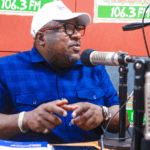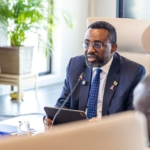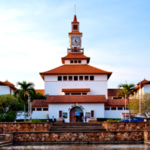
Ghana’s fight against corruption is being “severely weakened” by chronic underfunding and political influence across its key accountability institutions, according to the 2025 IMF Governance Diagnostic Report. The report cautions that the country’s anti-corruption architecture is nearing a breaking point.
The assessment, conducted in September 2023, reveals that major institutions, including the Office of the Special Prosecutor (OSP), the Economic and Organised Crime Office (EOCO) and the Commission on Human Rights and Administrative Justice (CHRAJ), often receive less than half of the budgets approved for them by Parliament.
As a result, the agencies responsible for investigating corruption, prosecuting financial crimes, safeguarding public resources and protecting whistleblowers are operating without the basic tools required to function effectively.
Although annual allocations are approved, the IMF notes that actual releases from the Ministry of Finance routinely fall far short, leaving institutions unable to recruit staff, sustain investigations, upgrade technology or pursue specialised prosecutions.
Even the OSP, established to tackle high-profile corruption cases, must obtain “clearance” from the Ministry of Finance before hiring or paying staff, a condition the IMF calls incompatible with operational independence.
Beyond funding challenges, the report warns that Ghana’s anti-corruption framework is “fragmented, overlapping and exposed to political influence.” This structural vulnerability, it argues, compounds the damage caused by underfunding and undermines the overall effectiveness of the system.
The IMF highlights harmful overlaps among the OSP, EOCO and CHRAJ, all of which investigate corruption-related offences but lack clear coordination protocols. This duplication, the report says, slows down cases, creates institutional confusion and allows political actors to exploit loopholes.
The Attorney-General’s constitutional authority over all prosecutions further limits the independence of EOCO and the OSP, whose prosecutorial powers remain more symbolic than guaranteed. The IMF references recent events — including the resignation of the first Special Prosecutor and the removal of the Auditor-General — as examples of political pressure at work.
Despite progress in digitalisation, access-to-information reforms and procurement upgrades, the IMF concludes that these gains are overshadowed by deep structural weaknesses. Accountability institutions lack the independence, funding and clarity of mandate needed to enforce Ghana’s own anti-corruption laws.
Without decisive reforms — including guaranteed financing, clearer institutional mandates and insulation from political interference — the IMF warns that corruption will continue to drain public revenue, erode investor confidence and threaten Ghana’s economic recovery.



